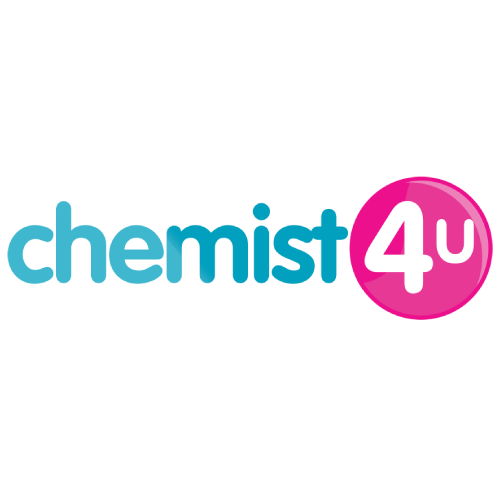What is Hypothyroidism?
WHAT DOES HYPOTHYROIDISM MEAN?
Hypothyroidism, or an underactive thyroid gland, is a common endocrine problem and requires lifelong treatment with thyroid hormone pills.
Untreated hypothyroidism is associated with a wide variety of symptoms, many of which are nonspecific.
In particular, memory problems and depression (psychometric problems) as well as weight gain are very common symptoms in hypothyroidism but also have multiple other nonthyroidal causes as well.
Levothyroxine is the main thyroid hormone produced by the thyroid gland and the synthetic form is the most common form of thyroid hormone replacement therapy.
Prior to the availability of the pure levothyroxine, desiccated animal thyroid extract was the only treatment for hypothyroidism.
Today, some individuals prefer dessicated thyroid extract as a more “natural” thyroid hormone.
In addition, some patients who continue to have symptoms of hypothyroidism when taking levothyroxine report improvement in these symptoms when switched to desiccated thyroid extract.
“Although desiccated thyroid extract is not widely used, studies show that many patients preferred this option as compared with levothyroxine. This result was observed despite there being no differences in thyroid function blood test and psychometric test results, although use of desiccated thyroid extract was associated with some weight loss.” — Angela M. Leung, MD, MSc

DO YOU HAVE HYPOTHYROIDISM?
Experiencing one or more of these signs and symptoms does not automatically mean you have thyroid disease.
Some hypothyroidism sufferers experience only a few of these symptoms, while others may not experience any symptoms at all.
Some common symptoms of hypothyroidism are:
- Fatigue
- Difficulty concentrating
- Feeling cold
- Headache
- Muscle and joint pain
- Weight gain, despite diminished appetite
- Constipation
- Dry skin
- Coarse hair, hair loss
- Hoarse voice
- Depression
- Menstrual irregularities
- Milky discharge from breasts (galactorrhea)
Please note, this list of symptoms is not complete.
While we make every effort to provide accurate, up-to-date and useful information, this website is not intended as a substitute for a clinical evaluation or the medical advice of a qualified doctor or healthcare professional.
If you think you may have hypothyroidism or you have any questions about your symptoms, please seek the care of a qualified healthcare professional.
Your doctor can prescribe the proper course of treatment after a thorough and complete examination.

BLOOD TESTS
There are a few blood tests that you can take to measure your thyroid hormone levels and diagnose thyroid conditions:
Free Thyroxine (T4) – FT4 test
This test measures the levels of T4 thyroxine in your blood, with a low level indicating hypothyroidism.
Free Triiodothyronine (T3) – FT3 test
This test measures the levels of T3 thyroxine in your blood, with a low level indicating hypothyroidism.
Thyroid Antibody Test
Positive levels of thyroid peroxidase and thyroglobulin, the antibodies that attack the thyroid gland, in the blood can indicate hypothyroidism.
TSH Test
Doctors often rely on the TSH (thyroid-stimulating hormone) blood test for diagnosing hypothyroidism, because thyroid hormone levels can still be in the normal range during the early stages of hypothyroidism.

TREATING HYPOTHYROIDISM
Natural hypothyroid treatments (NDT) formulated to mimic your body’s physiological processes are available.
This type of medication has been trusted for more than 80 years by doctors and patients alike all over the world.
They can be hypoallergenic, free of gluten, corn and artificial colors and flavors.
Most desiccated thyroid treatments have guaranteed T4 and T3 hormone levels.
Every batch is tested to ensure it meets or exceeds the standards set by the regulatory bodies in their country of production.

PREGNANCY AND HYPOTHYROIDISM
It is not uncommon for women to suffer from hypothyroidism during pregnancy. Some women enter the pregnancy with the condition, while others develop it during or after pregnancy.
If you are planning a pregnancy, talk to your doctor about the potential effects of hypothyroidism.
MOTHER AND BABY: EFFECTS OF HYPOTHYROIDISM
Hypothyroidism can lead to complications for mother and baby during and after the pregnancy, including preeclampsia, miscarriage, low birth weight, stillbirth, and decreased motor function and slower motor development.
ENTERING PREGNANCY WITH HYPOTHYROIDISM
If you enter a pregnancy with hypothyroidism, talk to your doctor about re-testing your levels as your dose may increase by nearly 50 percent during pregnancy to account for the baby’s needs.
Your baby may need additional thyroid hormone until its thyroid is fully grown, which typically occurs at about 12 weeks of gestation.
After birth, you will most likely return to your pre-pregnancy medication dose immediately or within a few weeks to a few months.

SYMPTOMS WHILE PREGNANT
Because your thyroid hormones will be in greater demand while pregnant, immediately let your doctor know about any symptoms you are experiencing, including exhaustion and fatigue, cold intolerance, memory problems, constipation or joint pain.
Though these are common pregnancy-related symptoms, they can also signal the onset of hypothyroidism.
Your doctor can run additional tests to rule out or diagnose the presence of a thyroid condition.
TREATMENT WHILE PREGNANT
Treatment for hypothyroidism for pregnant and non-pregnant women is the same. However, thyroid hormone levels can fluctuate during pregnancy and may need to be monitored more closely.
Medication is often adjusted periodically as TSH (thyroid-stimulating hormone) levels are tested throughout the pregnancy. Your doctor will determine the best course of treatment for you and your pregnancy.

HOW TO OBTAIN NATURAL DESICCATED THYROID
In the UK, all forms of NDT medication are prescription only and as such require a registered doctor to write a prescription for them.
As these forms of thyroid treatments are regarded as “unlicensed” in the UK, the prescribing doctor will have to complete a declaration to state the reasons as to why the licensed alternatives are not being supplied such as levothyroxine tablets.
The MHRA (Medicines and Healthcare Products Regulatory Agency) require this explanation to ensure patient safety is of the upmost importance.
If you have a private prescription, the chemist will charge you the full cost of the medication and a dispensing fee of their choosing.
The overall cost can be very different from one pharmacy to the next. To make things simpler we at Chemist-4-u offer a Price Match policy.*2
*https://getrealthyroid.com/the-real-facts.html
*2 – Price match is viable against confirmed quotes from any reputable chemist within 7 days of purchase. Subject to checks and authorisation.





